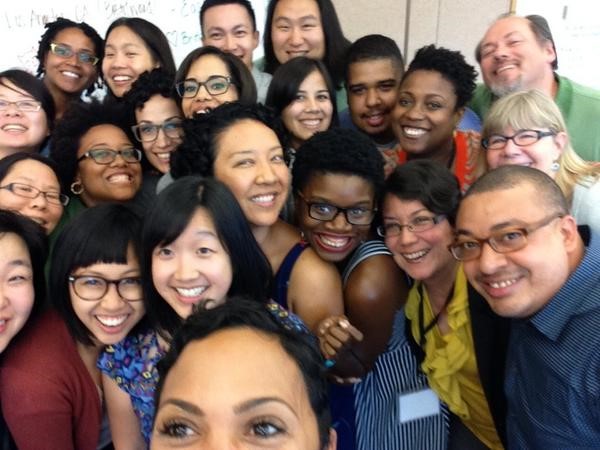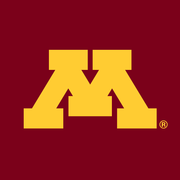by Tarida Anantachai, Simon Lee and Cynthia Mari Orozco

The Minnesota Institute for Early Career Librarians (MIECL) is an intensive, one-week professional development program intended for librarians from underrepresented groups in the first three years of their professional careers. Several APALA members attended the 2014 Institute last July and offered to share some of their takeaways in a series of web articles. In this first of three installments, Tarida Anantachai (Syracuse University), Simon Lee (UCLA), and Cynthia Mari Orozco (CSU Long Beach) reflect on MIECL’s cohort environment and discussions on supportive relationships.
One of MIECL’s learning objectives is to “[develop] a community of peers with whom participants share common experiences and on whom they can rely over time and distance for support and encouragement.” What do you think is the greatest value of the MIECL community?
Tarida Anantachai (TA): Actually, the community was the greatest value of MIECL itself. I am incredibly honored to have connected with such an amazing group of diverse librarians, which has also led to some exciting subsequent collaborations (like this article!). Establishing this community for openly sharing our thoughts—especially important for those who may have felt isolated or cautious in their new professional environments—and knowing that we and previous MIECL graduates are out there supporting other early career, diverse librarians has been both comforting and empowering. I know that we will be a constant presence for each other throughout our careers, and could not be more grateful for it.
As an early career librarian of color, it can be difficult finding others who share your perspective and experiences.
Simon Lee (SL): The greatest value of the Institute is connecting with a pool of diverse librarians with whom I can identify with. We are shaping the foundation of our early professional careers and have aspirations to lead and excel. The relationship I built with my cohort will stay with me throughout my professional career. This article mini-series is evidence that the connection does not end at the conclusion of the Institute. I reconnected with numerous members of my cohort through the Asian/Pacific American Librarians Association (APALA), we are well connected via social media, and soon I’ll be working with one employed by our library. Only time will tell what other merits will come from being a part of the MIECL.
Cynthia Mari Orozco (CMO): As an early career librarian of color, it can be difficult finding others who share your perspective and experiences. The Institute brought together a strong, passionate cohort of librarians with whom I was able to openly share my thoughts, discuss frustrations and ambiguity, and celebrate milestones and triumphs. Through the Institute, I gained an incredible support system that I have been able to turn to and continue that open dialogue. I have already been collaborating with some of my cohort members on future projects, including proposals for conference presentations and an LIS Microaggressions zine series.
What were the various types of support systems that were discussed at the Institute? How have you applied the lessons you’ve learned about them since then?
TA: Mentoring, unlike other support systems such as helping or coaching relationships, is more focused on broader issues related to the overall growth and development of the mentee. While guidance and feedback is also involved, it is more in terms of providing inspiration and creating a safe space that encourages self-exploration and discovery. Positive mentoring relationships are ongoing conversations of mutual trust that ultimately bolster the mentee’s own aspirations and interests.
Learning about supportive relationships at MIECL has helped me to better appreciate the distinct roles that our varied support systems play in our lives, and which ones may be more appropriate to seek out or apply in particular situations. For instance, I now approach my mentoring relationships as opportunities to reflectively explore ideas on a more holistic level, rather than to simply gather advice or assistance with a given task as in a coaching conversation. Amongst my colleagues and even my friends I have already recognized instances when a particular support behavior (e.g. offering feedback vs. listening vs. empowering someone to action) is better suited for the given need, and feel it has helped me to better address our relationship expectations, goals, and many ways we can support each other.
SL: Coaching/Feedback (CF): The goal of CF is to draw out the best one could be in their position. This challenging support system takes time to master. CF addresses problematic behaviors in a timely, specific, and focused manner. If, hypothetically, a sudden and unexpected outburst arises, find a reasonable time to discuss the issue, be specific about the outburst, and focus on that. The impact of that outburst may have led to subsequent problems which affects an entire team. Feedback requires that you truly desire to help a person improve and that one be thoughtful, diplomatic, and mindful. Most importantly, it requires that the subject is a willing and careful listener so it could be acted upon. Having an agreed action plan to gauge improvement is a possibility for effective coaching and feedback.
The Institute taught me the distinctions between these three supportive systems. My previous mentorships were short-lived because they were informal and unstructured. I have since continued regular, structured monthly meetings with my mentor which allow me to go back to readings, conversations, and focus on learning goals. The helping relationship enabled me to exercise better listening, which empower others to verbalize solutions they can claim as their own. CF should occur over the course of the year as opposed to the performance evaluation period. Time is needed for noticeable improvements.
Positive mentoring relationships are ongoing conversations of mutual trust that ultimately bolster the mentee’s own aspirations and interests.
CMO: Lastly, there’s the helping relationship, in which a person has a specific problem and the helper listens and provides guidance and perspective. An effective helper simply guides, rather than drives, the conversation while allowing the person to essentially discover and evaluate solutions on their own. As a mentor to sophomore students on academic probation, I meet regularly with my mentees and have incorporated this approach when we sit down and try to find solutions for academic success.
The lessons I have learned through the Institute have also guided me in my role as the mentor, helper, or coach when working with my colleagues or with mentees who are in library school. Learning when it is appropriate to offer guidance, when to give advice or opinions, or when it is best to sit back quietly and let others find their own paths is most certainly an art form—something that I look forward to working on over the course of my career and as I continue to connect with others in the field.

